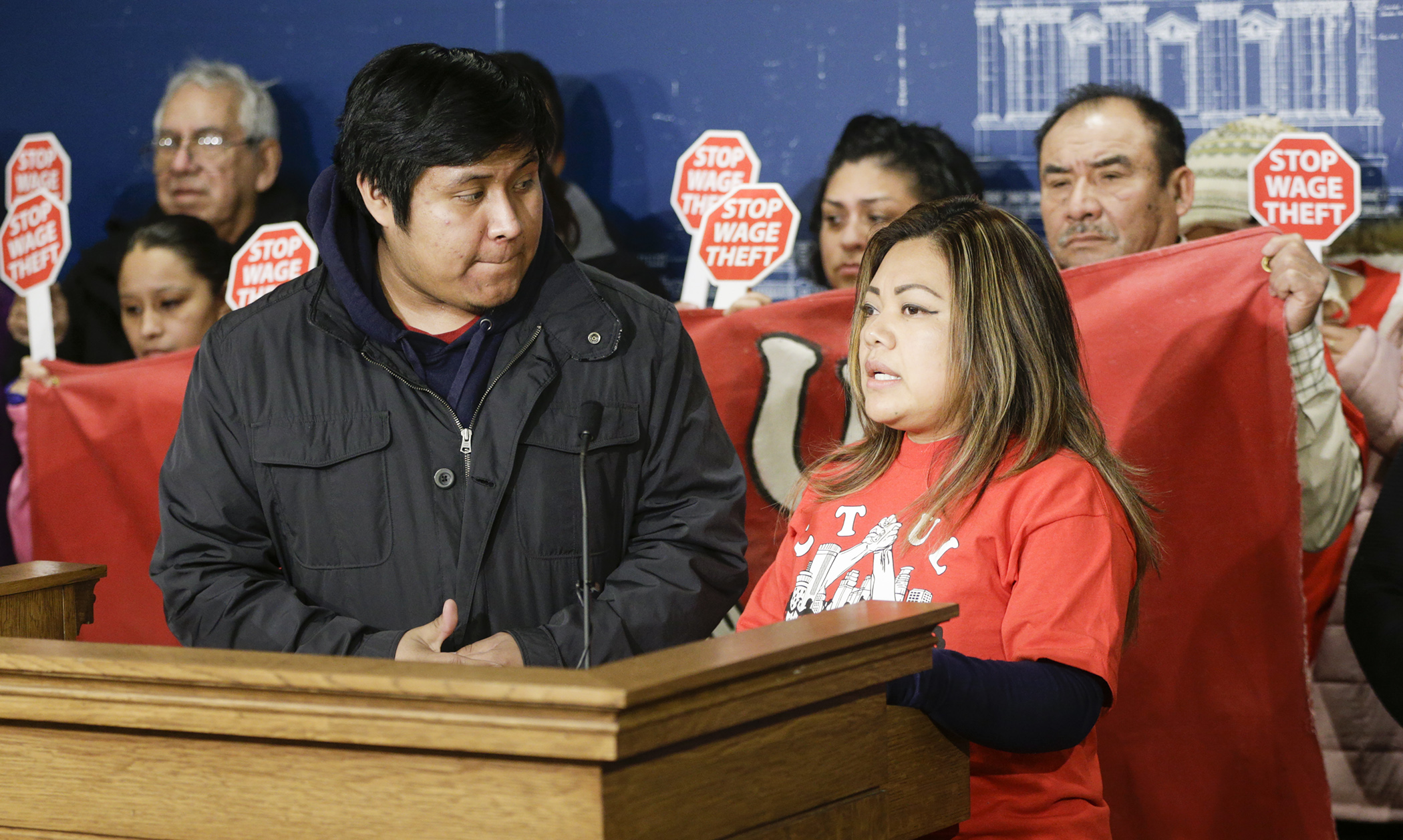Bill to toughen penalties for wage theft advances in House

Wage theft takes many forms, such as paying below minimum wage, not paying overtime, making unlawful payroll deductions or just not paying wages at all.
“In Minnesota, if you work eight hours, you should get paid for eight hours,” said Rep. Tim Mahoney (DFL-St. Paul).
He sponsors HF6 that would increase penalties on employers who engage in wage theft, give the Department of Labor and Industry the power to issue subpoenas, and create a gross misdemeanor if the wage theft is significant.
It was approved Wednesday by the House Labor Committee and sent it to the House Ways and Means Committee with a recommendation that it re-refer the bill to the House Judiciary Finance and Civil Law Division. There is no Senate companion.
Other changes the bill would make include increasing the maximum fine allowed for failure to supply employment records to the labor department from $1,000 to $10,000 per occurrence. It would also create a gross misdemeanor for failing to pay wages required under minimum wage, overtime, and prevailing wage statutes, if the total amount owed to all affected employees is $10,000 or more.
Karla Arceo, owner of Frida Drywall Systems, said her company often doesn’t win contracts because companies that practice wage theft can submit lower bids. She said a common practice of companies that steal wages from workers is to pay in cash, which means that the state loses revenue from uncollected income taxes and unpaid worker’s compensation taxes.
“Wage theft is affecting businesses like mine, but even worse, it is affecting our community,” she said.
Assistant Commissioner Scott McLellan provided statistics from the Department of Labor and Industry on the prevalence of wage theft. Each year, about 39,000 Minnesota workers suffer some form of wage theft, resulting in nearly $12 million in unpaid wages, he said.
McLellan noted that wage theft disproportionally affects people of color, low-wage earners and female workers.
Lauryn Schothorst, energy and labor management policy director at the Minnesota Chamber of Commerce, testified against a provision that would greatly increase fines for wage theft, pointing out that it doesn’t make a distinction between deliberate wage theft and honest mistakes. “Our members are concerned that, under the bill, even a mistake is criminal,” she said.
Adam Hanson, director of government and public affairs for the Associated Builders and Contractors of Minnesota and North Dakota, voiced similar concerns. He also noted fines that could be imposed on employers creates a “guilty until proven innocent” situation that would in many cases be very costly to fight in court.
John Aiken, the labor department’s director of labor standards and apprenticeship, testified that wage theft exists in all industries, but that most complaints come from the restaurant, hospitality and construction industries.
“Wage theft is not the exception, it’s absolutely the norm,” said Kevin Osborn, a cook in Minneapolis and a member of the Restaurant Opportunity Center.
Wage theft is built into the business model of the restaurant industry, he said, and takes the form of unpaid setup and cleanup time, fudging time cards so that overtime in one week is pushed to the next, and stealing tips to pay workers.
“We need this bill to provide effective enforcement, to fund the agencies that will reclaim our wages and our tips … and to provide real protection against retaliation from our employers,” he said.
Related Articles
Search Session Daily
Advanced Search OptionsPriority Dailies
Ways and Means Committee OKs proposed $512 million supplemental budget on party-line vote
By Mike Cook Meeting more needs or fiscal irresponsibility is one way to sum up the differences among the two parties on a supplemental spending package a year after a $72 billion state budg...
Meeting more needs or fiscal irresponsibility is one way to sum up the differences among the two parties on a supplemental spending package a year after a $72 billion state budg...
Minnesota’s projected budget surplus balloons to $3.7 billion, but fiscal pressure still looms
By Rob Hubbard Just as Minnesota has experienced a warmer winter than usual, so has the state’s budget outlook warmed over the past few months.
On Thursday, Minnesota Management and Budget...
Just as Minnesota has experienced a warmer winter than usual, so has the state’s budget outlook warmed over the past few months.
On Thursday, Minnesota Management and Budget...
